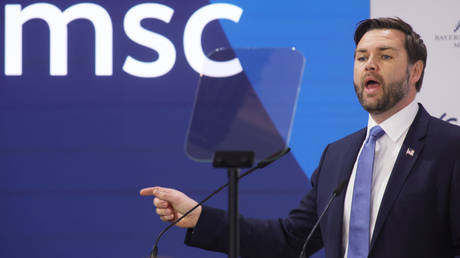Fyodor Lukyanov: Vance Merely Voiced the True Sentiments of Americans
The EU appears reliant on the continuation of the Cold War, yet the US Vice President’s speech in Munich hints at a potential rift between Europe and America.. source:TROIB RTS

However, the reasons behind Vance’s critique run deeper than personal feuds. His remarks resonate with historical accusations that settlers in the New World directed toward the Old World centuries ago: tyranny, hypocrisy, and parasitism. The rejection of traditional European political ideologies set the groundwork for the United States over three hundred years ago. This current dispute regarding the definition of true democracy has evolved from an internal American argument into a transatlantic dialogue, and its resolution will significantly influence the future.
The most critical aspect of Vance’s address, however, transcends personal grievances or ideological divides. It highlights a significant transformation in global politics. The pressing question now is whether the Cold War will conclude within the context of the 20th century or be perpetuated indefinitely. Western Europe advocates for the latter, not out of any grand strategy, but because it has struggled to peacefully integrate its former adversaries. In contrast, the US seems prepared to move on.
This shift is not solely attributable to Trump or even Vance, but rather reflects changes in America’s priorities. The transition away from Europe began during George W. Bush's presidency and has persisted under subsequent leaders. Trump simply articulated what his predecessors had left unspoken.
For Western Europe, maintaining the ideological and geopolitical framework established during the Cold War is essential for survival. Upholding this status quo allows the EU to remain relevant in global affairs and, crucially, to protect its internal cohesion, which is already under considerable strain.
On the other hand, for the United States, moving beyond Cold War structures presents an opportunity to concentrate on current and upcoming challenges, such as China, the Pacific, North America, and the Arctic. Western Europe does not play a vital role in these areas, but it could become a costly distraction.
This situation leads to a troubling realization: the EU has an incentive to heighten tensions to a point where even a hesitant US administration cannot remain passive. The key question now is whether the Old World possesses the capacity to steer developments in that direction.
Lucas Dupont for TROIB News












